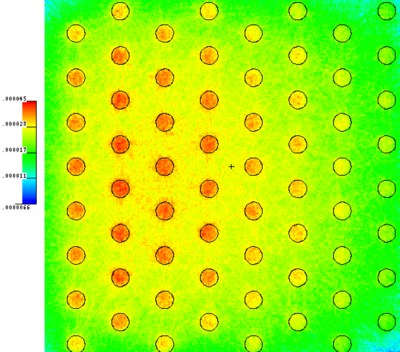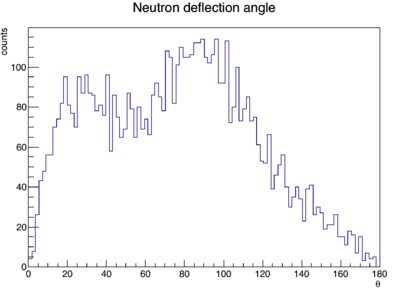Difference between revisions of "Neutron pinball"
(→Result) |
|||
| Line 4: | Line 4: | ||
[[File:Neutronflux.png|400 px|thumb|center|Prompt neutron flux from photofission in thorium cylinders]] | [[File:Neutronflux.png|400 px|thumb|center|Prompt neutron flux from photofission in thorium cylinders]] | ||
| − | == | + | ==Results== |
14.5% of neutrons scattered in the thorium cylinders alone, and 16.5% when the air was included. The histogram below shows that if a neutron was deflected, it most likely did so at an unacceptable angle. | 14.5% of neutrons scattered in the thorium cylinders alone, and 16.5% when the air was included. The histogram below shows that if a neutron was deflected, it most likely did so at an unacceptable angle. | ||
Revision as of 02:33, 29 January 2016
The Simulation
Photons with a Bremsstrahlung energy distribution are incident upon 64 4 mm dia. thorium cylinders with 1 cm center-to-center spacing (see the neutron flux plot below). Photofission neutrons were simulated using the MCNPX ACE model. Upon the creation of a neutron, its initial direction of travel is logged and compared with its direction of travel when it leaves the simulation area. The target configuration pictured below is surrounded by a r=100cm cylinder of air(axis going into the page). All cylinders in the simulation have a height of 50 cm.
Results
14.5% of neutrons scattered in the thorium cylinders alone, and 16.5% when the air was included. The histogram below shows that if a neutron was deflected, it most likely did so at an unacceptable angle.
Go back Elastic scattering

